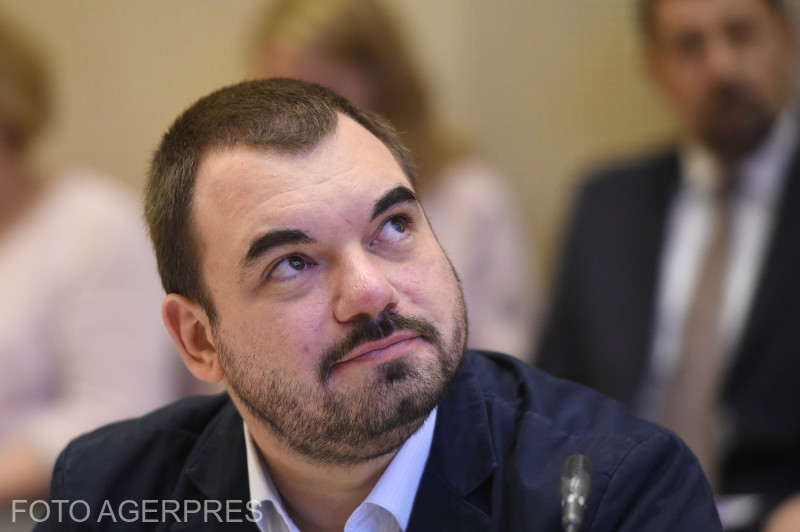
An unprecedented crisis of immunosuppressive drugs in Romania. We are talking about vital drugs for transplant patients and patients with autoimmune diseases. The problems started 6 months ago, the patients told HotNews.ro. Some of them survived this period by borrowing the few medicines they had among themselves, or by reporting to the patients’ society, which, with the help of the authorities, also found small stocks in warehouses or pharmacies. However, in recent weeks, the problems have intensified.
Sandimoon Neoral and Mythoric these are immunosuppressive drugs that have not been available in pharmacies in Romania for months.
He joins them Valgancicloviran antiviral drug used after organ transplantation is also not available.
Patients demand urgent solutions. The Agency for Medicines urgently begins redistribution of existing stocks in warehouses in the country
At a meeting with patients and drug manufacturers, representatives of the Ministry of Health and the National Medicines Agency promised a solution, but it is not known how quickly the drugs will return to pharmacies.
“I told them that the next day after this meeting, the delivery of medicines to pharmacies should begin. We can’t wait, I don’t know how many days, until you make an assessment,” Gheorghe Tache, president of the Romanian Transplant Association, told HotNews.ro.

Rezvan Prisada, president of the National Agency for Medicines and Medical Devices
On the other hand, the president of the National Medicines Agency, Rezwan Prisada, says that the first measure taken by the authorities is to redistribute the medicines currently in the country’s warehouses to pharmacies where patients have asked for the medicine and could not find it.
In a few days the problem should be solved, and for the next period the producers have promised to increase the quantity: “It can last a few days, maybe a week,” says Gheorghe Tache.
If necessary, medicine can be brought with a permit for special needs, says Rezvan Prisada.
“The crisis started 6 months ago. It has strengthened since the beginning of the year”
The crisis of immunosuppressive drugs started 6 months ago and has intensified since the beginning of this year, Gheorghe Tache, president of the Romanian Transplant Association, himself a post-transplant patient, told HotNews.ro.
“We, as a patient association, when patients report us, we contact the Ministry of Health and report there as well,” says Gheorghe Tache.
Patients do not remember that these medicines were not available from Romania for so long.
“There have been problems for 6 months. The patients turned to the patient association, and we, in turn, to the Ministry of Health and the National Health Service. Others borrowed medicine from each other. They searched more in pharmacies, it was more difficult for them, but today they gave a little, next week they brought something, they gave a little more. They gave fragmentary,” the transplant patient explains to HotNews.ro how she and other patients coped during this period.
Now, after the authorities promised urgent measures, the patients of the association under the leadership of Gheorghe Tache hope that from next Monday the drugs in the warehouses will reach the pharmacies where the patients’ requests were made, as Rezvan Prysada, president of the National Agency of Medicines and medical products.

Gheorghe Tache, President of the Romanian Transplant Association
“There are very few immunosuppressive drugs throughout the country. There are still stocks in the country’s warehouses, and they will be directed to the places where patients have reported that they cannot find the medicine, in order to take it as a priority to the places where the patients have reported that they do not have it. We give the authorities access to those places in the country – such and such a city or district – where patients have reported to us that medicine cannot be found. We take the prescription to the pharmacy, and the pharmacy is obliged to give the order to the warehouse and send the medicine from there. It may take a few days, maybe a week,” explains Gheorghe Tache, president of the Transplantation Association.
Another problem, says Gheorghe Tache, is that manufacturers bring the necessary drugs 3 or maybe 4 times a month in installments. “But it happens that many patients are taken in the first decade of the month, and then it’s normal not to find them if everyone asks at the same time. Now the manufacturers have also promised to increase the number.”
Regarding valganciclovir, an antiviral drug used after organ transplants, which is also out of stock, Gheorghe Tache says the drug will be brought from Bulgaria, “which has a larger quantity and their patients are not asking for it during this period. And in May, the manufacturer will resume production and start supplying the necessary volumes to EU countries, including nine.”
Prohibition of parallel export, in the list of measures of the Ministry of Health and the Agency for Medicines
A list of decisions made at this week’s meeting between patient representatives, the Ministry of Health and the National Medicines Agency:
- 1. all reports on intra-Community trade (“parallel exports”) are terminated;
- 2. manufacturers, distributors and pharmacies will analyze stocks at each level;
- 3. Control of ANMs in the distribution chain will be strengthened;
- 4. medicines will be distributed as a matter of priority in the districts where their shortage has been reported (We ask those who have reported a shortage of medicines to date, to inform the association ([email protected]) about the medicines, the pharmacy and the city);
- 5. further, patients after transplantation must inform the association ([email protected]) if the prescription is delayed, the drugs and their quantity, the pharmacy and the settlement where the prescription was submitted, as well as the date of submission;
- 6. Regarding Valganciclovir, arrangements are being made to ship some quantities from Bulgaria and production and imports will resume from May. For emergency situations, there is an option for the ANM to trigger the “special needs” mechanism, in which case the medication is not reimbursed (its cost is borne entirely by the patient).

drugs / Photo: Gicamatescu | Dreamstime.com
What are immunosuppressants and why are they vital for transplant patients?
Immunosuppressants are drugs that suppress or reduce the body’s immune response under certain conditions. Transplant patients, for example, are prescribed immunosuppressants to prevent rejection of the transplanted organ.
In addition to post-transplant patients, they are also often administered for autoimmune diseases such as rheumatoid arthritis, Crohn’s disease or psoriasis.
The current crisis in Romania is unprecedented. Patients do not recall ever going without medication for such a long time.
Photo: Dreamstime.com, Agerpres.
Source: Hot News
Ashley Bailey is a talented author and journalist known for her writing on trending topics. Currently working at 247 news reel, she brings readers fresh perspectives on current issues. With her well-researched and thought-provoking articles, she captures the zeitgeist and stays ahead of the latest trends. Ashley’s writing is a must-read for anyone interested in staying up-to-date with the latest developments.